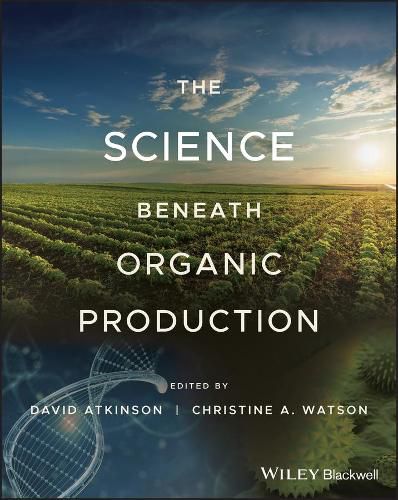Readings Newsletter
Become a Readings Member to make your shopping experience even easier.
Sign in or sign up for free!
You’re not far away from qualifying for FREE standard shipping within Australia
You’ve qualified for FREE standard shipping within Australia
The cart is loading…






A groundbreaking book that addresses the science that underpins organic agriculture and horticulture and its impact upon the management of organic systems
With contributions from noted experts in the field, Organic Agriculture explores the cultural context of food production and examines the historical aspects, economic implications, and key scientific elements that underpin organic crop production. The book shows how a science-based approach to organic farming is grounded in history and elements of the social sciences as well as the more traditional areas of physics, chemistry and biology.
Organic Agriculture offers a detailed explanation of the differences between organic systems and other approaches, answering questions about crop production and protection, crop rotations, soil health, biodiversity and the use of genetic resources. The authors identify current gaps in our understanding of the topic and discuss how organic farming research may be better accomplished in the future. This important book:
Explores the science that underpins organic farming Contains illustrative case studies from around the world Examines organic agriculture’s philosophical roots and its socio-economic context
Written for scientists and students of agriculture and horticulture, this book covers the issues linked to the use of science by organic producers and identifies key elements in the production of food.
$9.00 standard shipping within Australia
FREE standard shipping within Australia for orders over $100.00
Express & International shipping calculated at checkout
A groundbreaking book that addresses the science that underpins organic agriculture and horticulture and its impact upon the management of organic systems
With contributions from noted experts in the field, Organic Agriculture explores the cultural context of food production and examines the historical aspects, economic implications, and key scientific elements that underpin organic crop production. The book shows how a science-based approach to organic farming is grounded in history and elements of the social sciences as well as the more traditional areas of physics, chemistry and biology.
Organic Agriculture offers a detailed explanation of the differences between organic systems and other approaches, answering questions about crop production and protection, crop rotations, soil health, biodiversity and the use of genetic resources. The authors identify current gaps in our understanding of the topic and discuss how organic farming research may be better accomplished in the future. This important book:
Explores the science that underpins organic farming Contains illustrative case studies from around the world Examines organic agriculture’s philosophical roots and its socio-economic context
Written for scientists and students of agriculture and horticulture, this book covers the issues linked to the use of science by organic producers and identifies key elements in the production of food.